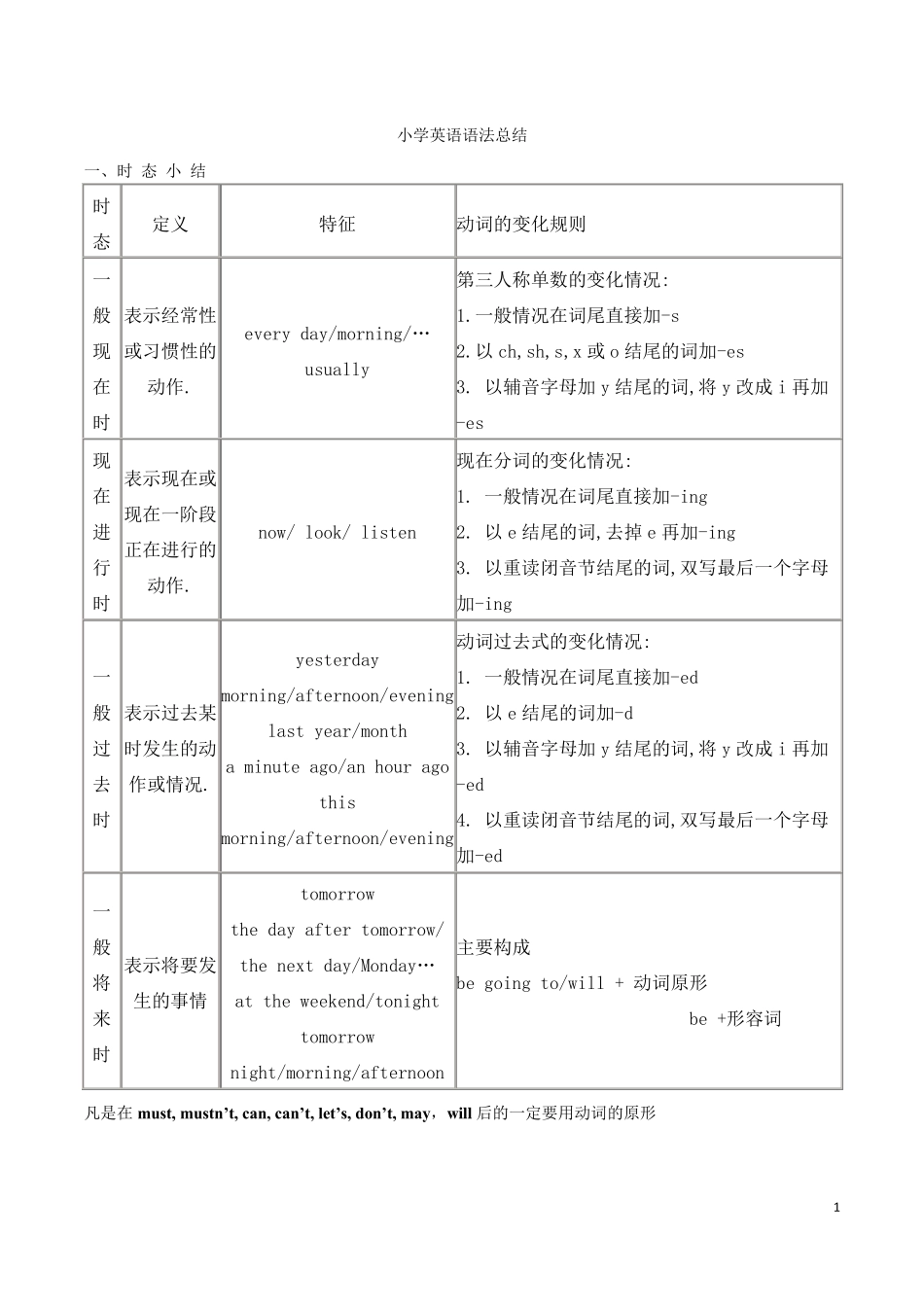1 小学英语语法总结 一、时 态 小 结 时态 定义 特征 动词的变化规则 一 般 现 在 时 表示经常性或习惯性的动作. every day/morning/… usually 第三人称单数的变化情况: 1.一般情况在词尾直接加-s 2.以 ch,sh,s,x 或o 结尾的词加-es 3. 以辅音字母加 y 结尾的词,将 y 改成 i 再加-es 现 在 进 行 时 表示现在或现在一阶段正在进行的动作. now/ look/ listen 现在分词的变化情况: 1. 一般情况在词尾直接加-ing 2. 以 e 结尾的词,去掉 e 再加-ing 3. 以重读闭音节结尾的词,双写最后一个字母加-ing 一 般 过 去 时 表示过去某时发生的动作或情况. yesterday morning/afternoon/evening last year/month a minute ago/an hour ago this morning/afternoon/evening 动词过去式的变化情况: 1. 一般情况在词尾直接加-ed 2. 以 e 结尾的词加-d 3. 以辅音字母加 y 结尾的词,将 y 改成 i 再加-ed 4. 以重读闭音节结尾的词,双写最后一个字母加-ed 一 般 将 来 时 表示将要发生的事情 tomorrow the day after tomorrow/ the next day/Monday… at the weekend/tonight tomorrow night/morning/afternoon 主要构成 be going to/will + 动词原形 be +形容词 凡是在must, mustn’t, can, can’t, let’s, don’t, may,w ill 后的一定要用动词的原形 2 二、名词的复数。 名词按其数,可分两种:可数名词和不可数名词. 可数名词的复数变化规则: 1. 一般情况下,直接在词尾加-s, 如:girl-girls, book-books, pen-pens 2. 以 s,x,sh,ch 结尾的词,在词后加-es, 如:class-classes, box-boxes, match-matches, 3. 以辅音字母+y 结尾的,变 y 为 i 再加-es, 如:city-cities, family-families, country- countries 4. 以 f 或 fe 结尾的,变 f 或 fe 为 v 再加-es, 如:knife-knives, wife-wives, life-lives, 5. 以 o 结尾的加-es 或-s, 如: radio-radios, tomato-tomatoes, potato-potatoes, zoo-zoos, photo-photos, 6. man-men, woman-women, foot-feet, child-children, 三、形容词的比较级、最高级。 形容词有比较级与最高级之分, 单音节词的变化规则: 1. 一般情况下,直接在词尾加-er 或-est, 如:small-smaller-smallest, short-shorter-shortest 2. 以 e 结尾的,加...


